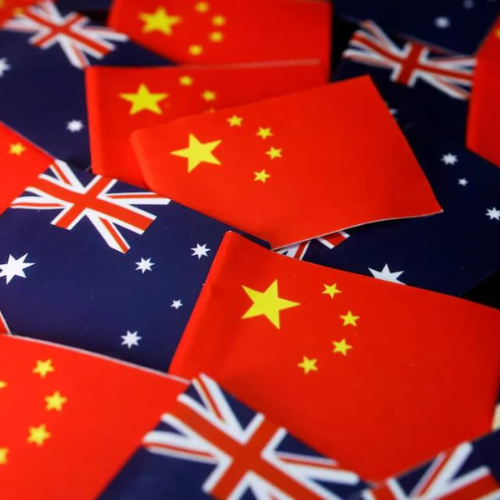China has reached out to Australia, asking it to “join hands” as it struggles with a new wave of trade pressure from the United States. Under the leadership of President Donald Trump, the U.S. recently announced massive tariffs—as high as 125%—on Chinese goods. These tariffs make Chinese products much more expensive in the American market, putting a big strain on China’s economy.
In response to this, China is looking for support from countries like Australia. Chinese Ambassador Xiao Qian published an editorial in an Australian newspaper, urging both nations to “work together” and “resist the bullying and hegemonic behavior” of the U.S. He warned that if countries do not stand up to Washington’s actions, the world economy—which is just starting to recover—could fall into serious trouble again.
Ambassador Xiao claimed that the U.S. is damaging global trade rules to serve its own interests and that only strong cooperation between countries like China and Australia can stop this trend.
Australia’s Direct Response
Australia has firmly rejected the idea of siding with China. Speaking to Sky News, Deputy Prime Minister Richard Marles made it clear that they do not support a trade war between China and the United States, it also has no intention of taking sides. Marles said, “We are not going to be holding hands with China in respect of any contest that is going on in the world.”
China’s 84% Tariffs Mark New Chapter In US Trade War
Instead, Marles explained that Australia is focusing on diversifying trade, especially with countries in Southeast Asia, such as Indonesia, which he described as a major potential market right next door.
Prime Minister Anthony Albanese also addressed the matter with a slightly more balanced tone. He said that the trade relationship with China is very important, pointing out that one in four Australian jobs is connected to trade, and that China remains the country’s biggest trading partner.
However, Albanese also noted that 80% of global trade has nothing to do with the United States, meaning Australia has many chances to grow its trade links elsewhere. His message suggested that while the country respects its trade relationship with China, it will continue making independent decisions based on its national interest.
Security Concerns and the Port of Darwin Debate
China’s diplomatic message comes at a time when tensions between the two nations have been growing. In February, the Chinese Navy conducted live-fire military exercises in the Tasman Sea, close to Australian waters. What raised eyebrows was the fact that China didn’t inform Australia through formal channels. Instead, the only warning came through a general broadcast picked up by airline pilots flying over the area.
Trump Slaps 104% Tariffs on China in Big Trade Fight
At the same time, the issue of the Port of Darwin has returned to national debate. In 2015, the Northern Territory government leased the key port to Chinese-owned Landbridge Group for 99 years. That deal was approved during the time Malcolm Turnbull was Prime Minister and has since become a major national security concern.
Both major Australian political parties, including the current Labor government and the opposition Coalition, have promised to review or even cancel the lease because of fears it gives China too much influence over critical infrastructure.
As all this unfolds, Australia’s top economic regulators recently held an emergency meeting. Their goal was to figure out how Trump’s tariffs might slow down China’s economy and whether that could hurt demand for Australian exports like iron ore, gas, and agricultural products.
Despite the risks, Treasurer Jim Chalmers has said he’s confident that their economy will continue to grow, but the situation is being watched closely.
So far, Australia has chosen to stay neutral and cautious, refusing to get caught in the middle of a power struggle between its largest trading partner and a major global ally.


